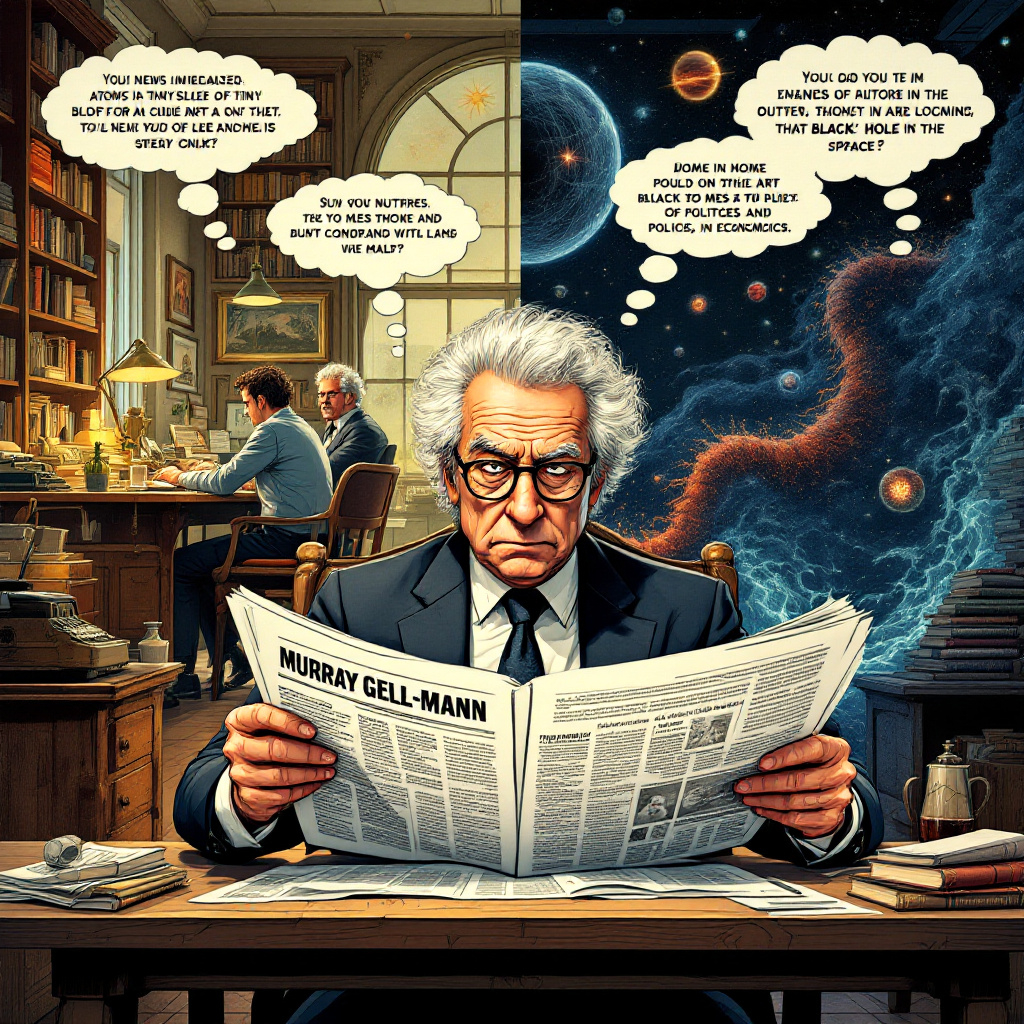The Gell-Mann Effect and the Bandwagon Trap: Why We Trust What We Don’t Know And Follow the Crowd

Murray Gell-Mann, Nobel Prize winner in Physics, had a peculiar morning routine.
Every day, upon opening the newspaper, he would start with the science section. And every day, inevitably, he would frown. "Basic physics mistakes again," he would mutter. "How can they publish something like this?", Then he would move on to the international politics, economics, or arts section. And here something fascinating would happen: he assumed that these articles, unlike those on physics, were accurate and well-researched.
Until one day he had a troubling revelation: if journalists constantly made mistakes in the only area they mastered, why assume they were more competent when writing about topics he didn’t know? This phenomenon, dubbed the Gell-Mann asymmetry, reveals one of the most subtle and powerful paradoxes of our cognition: we notice and criticize errors in areas we know well, but we assume competence and precision in areas we don’t.
The Illusion of Others' Competence: If you run a small business, you’ve probably experienced this phenomenon without realizing it. Think about the last time you hired a service outside your specialty. Perhaps a web developer if your business is a hair salon, or a marketing consultant if you run a family hardware store. Did you meticulously question their proposal? Or did you trust their credentials and experience without the real ability to evaluate their competence? Meanwhile, in your own field, you instantly detect when something isn’t working correctly. You know every detail, every nuance, every possible flaw. Your critical eye is sharp and precise.
This asymmetry constantly manifests in everyday decisions that can determine the future of your business.
The Cost of Asymmetry: The asymmetry particularly affects four critical areas
1. In technology: We are hyper-critical of tools we know but dazzled by innovations we don’t understand.
2. In talent: We are demanding when evaluating familiar skills but naive about impressive credentials in emerging specialties.
3. In investments: We are meticulous with expenses in our main business but surprisingly lax when diversifying.
4. In alliances: We know our weaknesses perfectly but idealize the strengths of potential partners or competitors.
Counteracting the Asymmetry:
1. Cultivate conscious ignorance. “I don’t know” is the beginning of stronger decisions, not an admission of weakness.
2. Triangulate information. Never trust a single source when venturing outside your specialty. Deliberately seek opposing voices.
3. Set the same level of rigor. If you spend three days evaluating new equipment, why only 30 minutes choosing your accounting system?
4. Reward critical thinking. Don’t surround your table with advisors who always say "yes." A timely "no" can save you thousands of euros.
The next time you face a decision outside your comfort zone, ask yourself: Would I be satisfied with this level of analysis if it were in my specialty?
Recognizing the limits of your knowledge is not weakness. It is precisely what will give you an advantage when everyone else is blinded by misplaced confidence.
We live in the era of external influence. Trends dictate our beliefs, our decisions, and even our work.
The cognitive bias of the bandwagon effect, explains how we are carried away by what’s popular, rationalizing our choices afterward. We believe we follow logic, but in reality, we follow the crowd.
We inherit our beliefs, values, and judgments. We are not designed to develop impeccably rational ideas. We are designed to fit in. Social media has amplified this. They make us believe that the key to success is attracting attention. That if we get strangers to follow us, the money will come later. But building a business isn’t just about posting stories and hoping they go viral. Success still depends on the same old principles: talking to real customers. Solving specific problems. Creating tangible value.
social media can amplify a good business, but they don’t replace the fundamentals. It’s not about being famous on the internet. It’s about being indispensable to the right people. We must ask ourselves: Are we building something real, or just trying to be seen?
"True knowledge is knowing the extent of one’s ignorance." — Confucius
Let’s take a moment and ask this question: What is your market seeing when you expose your brand? Your business is not what you say it is. It’s what the market perceives it to be. That perception dictates whether they see you as the obvious choice or just another option. Whether they trust your proposal or question it. Whether they are willing to pay your value or negotiate your price.
Are you ready to turn your business into the obvious choice? Don’t let cognitive biases like the Gell-Mann Effect and the Bandwagon Trap hold you back. Book a 1:1 Communication Pre-Analysis session with us today. Together, we’ll:
- Identify blind spots in your positioning.
- Ensure your message attracts the right customers, not just noise.
- Refine your narrative to highlight what truly makes your business unique and valuable.
Spaces are limited—reserve your session now and take the first step toward becoming indispensable to your market. Let’s build something real, not just visible."